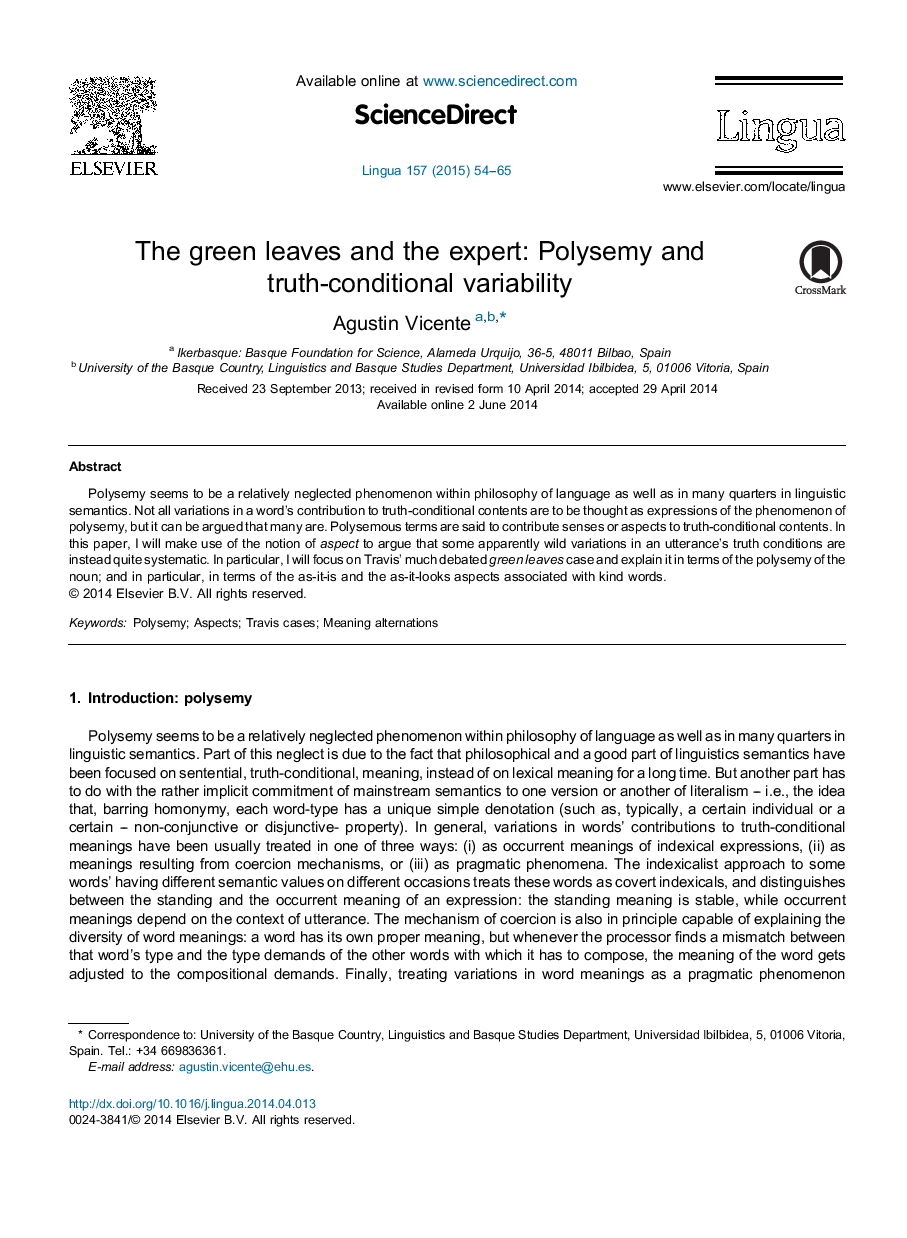| Article ID | Journal | Published Year | Pages | File Type |
|---|---|---|---|---|
| 935611 | Lingua | 2015 | 12 Pages |
•Some apparently pragmatic variations in word meaning are expressions of the polysemy phenomenon.•In particular, some Travis cases can be accounted for in terms of polysemy.•Lexical entries contain, or systematically give access to, rich conceptual information.•Contexts can differentially activate parts of this rich conceptual structure highlighting aspects.•It is important to pay attention to the appearance/is distinction and the “essentialist stance”.
Polysemy seems to be a relatively neglected phenomenon within philosophy of language as well as in many quarters in linguistic semantics. Not all variations in a word's contribution to truth-conditional contents are to be thought as expressions of the phenomenon of polysemy, but it can be argued that many are. Polysemous terms are said to contribute senses or aspects to truth-conditional contents. In this paper, I will make use of the notion of aspect to argue that some apparently wild variations in an utterance's truth conditions are instead quite systematic. In particular, I will focus on Travis’ much debated green leaves case and explain it in terms of the polysemy of the noun; and in particular, in terms of the as-it-is and the as-it-looks aspects associated with kind words.
